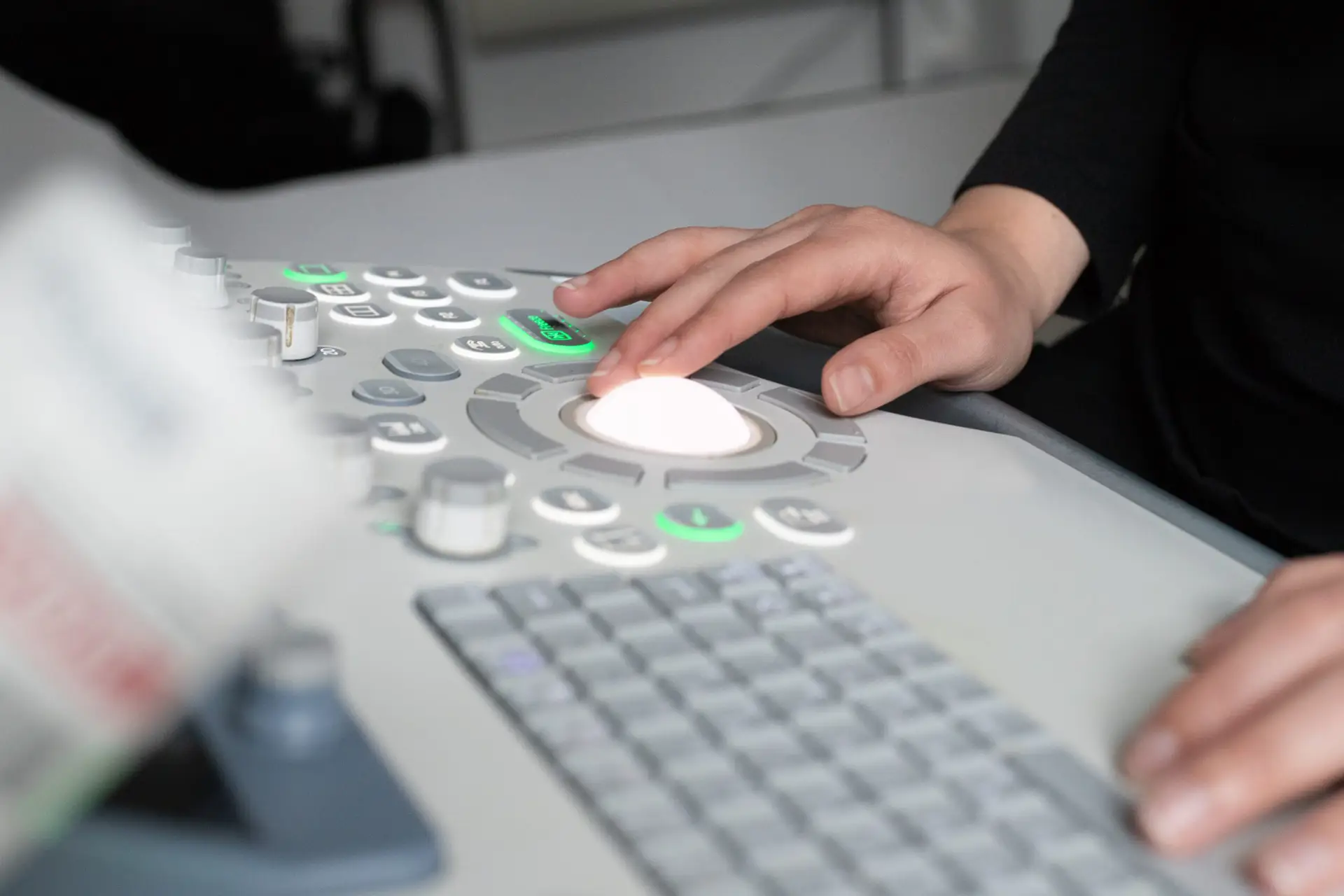
Sophia McCarthy
Operations Manager
If you have been referred for a medical ultrasound by your doctor, you may have a few queries in advance of your appointment. We thought it might be useful to compile a list of our most commonly asked questions to give you a better idea of what to expect.
Q: Will my health insurance cover my scan?
We do not deal directly with the different health insurance companies. We ask for payment from you at the time of the scan and issue you with a receipt to submit to your health insurance. Some health insurances will cover it in full, others will give you part of the money back and others will not cover the scan at all. You will need to check with your health insurance prior to the scan.
Otherwise, following payment, you should receive either a printed or emailed receipt with an invoice breakdown. If your insurance provider requires any other details, please let us know via info@theultrasoundsuite.ie and we can update the receipt.
Q: I see on your website that partners are allowed to attend pregnancy scans. Is this the same policy for medical scans?
For medical scans, it is preferable if you can attend alone. However, if you are particularly nervous and need someone there for support, you absolutely can bring one guest to your appointment. They may be asked to wait at the reception area during your appointment. If this changes in the meantime, the policy on our website will be updated accordingly.
Q: Would it be possible to get an official appointment letter emailed to me? I need it for my employer.
Yes, that is no problem. We can write up an official letter that will state you are attending an ultrasound appointment and the date and time. We will not disclose what type of ultrasound you will be receiving.
Q: I know my doctor specified an ultrasound of just one area in their referral, but I was hoping to have an extra scan for a different issue on the day. Could you add this too? I’m just really worried something will be missed.
While it can seem like an easy switch, we unfortunately can’t change the scan type at short notice. When a doctor is referring you for a medical scan, it is vital to have the correct scan type specified, as the sonographer can only scan the area requested on the letter. If you would like another scan included, we recommend calling your GP before your appointment. They can quickly edit the letter and resend it to us. However, do keep in mind that if you are adding another scan type, we will need to extend your appointment time to an hour, incurring an extra €100 cost and a possible reschedule. But if it gives you greater peace of mind, it’s worth it.
Q: Will I find out the results on the day of the scan? I’m just anxious to know what the diagnosis is.
Unfortunately, we can’t disclose results on the day. Our sonographer’s job is to provide detailed images and a report for a radiologist, not to diagnose. While our sonographers are more than happy to talk you through the scan and explain what they are looking at, they cannot give you a diagnosis based on the scan alone. Luckily, we have a very quick turnover time for reports (usually within 48 hours), and once our radiologist has given their impression, your doctor will shortly receive a clear and concise report on their findings and will contact you directly.
If there is any delay and your doctor has not received your report, please let us know straight away and we will rectify the issue.
Q: What parts of the body can’t be scanned by ultrasound?
While an ultrasound is an excellent source of diagnostic information for you and your doctor, it is important to be aware of its limits.
For instance, did you know ultrasound waves can’t travel through air? Well, gas, to be more accurate! This is why we use ultrasound gel on the transducer, it provides a gooey shield to ensure no bubbles of air can interrupt the visibility. However, even with gel, we still won’t be able to get a good look at the more gas-producing organs of the abdomen: the stomach and the intestines.
This means we cannot identify certain causes of stomach discomfort such as ulcers, masses or blockages. However, having the ultrasound will at least rule out any issues that aren’t stomach related, allowing your doctor to refine their area of questioning.
We also cannot provide ultrasounds of the lungs, heart or brain as these require far more specialised scanning methods, such as MRI.
Q: I’m booked in for an Abdomen Scan; why do I need to fast for 6 hours before the appointment?
The fasting is to ensure we can get a good look at the gallbladder and pancreas. If you were to ingest anything besides water and essential medication prior to the scan, your gallbladder would contract in order to start breaking down the substance and produce gas, meaning the ultrasound study might not be possible. The view of the pancreas will also be blocked in turn by accumulating stomach gas. Poor visibility of either may result in you being brought back again on another day, costing you more money and time. Even having a cup of tea with a dash of milk can provide enough sugar to kick start gas production, so you really have to be strict when fasting and stick to water and medications only.
However, if you are really dreading the idea of fasting, we suggest booking your abdominal scan first thing in the morning. That way, you can sleep through most of the 6 hour fasting period and treat yourself to a nice breakfast afterwards!
For more useful FAQs like these, you can have a look at our FAQ section on our website where we cover more information about all of our scans, including pregnancy scans.
If you would like more information on anything covered in this post, you can get in touch via info@theultrasoundsuite.ie or send us a message on our Facebook page and we will get back to you as soon as possible. Our website www.theultrasoundsuite.ie also provides a wealth of information on our various policies and procedures.
We look forward to seeing you soon!
